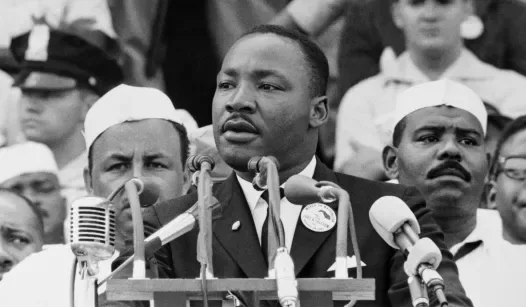In a time of heightened political polarization and social unrest, the enduring legacy of Dr. Martin Luther King Jr. is more relevant than ever. His iconic “I Have a Dream” speech, delivered during the 1963 March on Washington, remains a powerful call for unity, justice, and equality. However, some contemporary movements and ideologies seem to stray from King’s vision, focusing instead on division and resentment.
Dr. King’s message was rooted in the belief that genuine progress could only be achieved through understanding and collaboration, rather than hostility. He advocated for a society where individuals would be judged by their character rather than the color of their skin. This ideal was not merely aspirational; it was a blueprint for a harmonious society that could overcome the deep-seated issues of racism and inequality.
In today’s political landscape, it is crucial to reflect on the essence of King’s message. Many modern activists and commentators, while passionately addressing systemic injustices, sometimes inadvertently perpetuate a cycle of resentment and division. This shift raises important questions: Are we genuinely honoring Dr. King’s legacy, or are we misinterpreting his dream in a way that fosters further discord?
The call for social justice is undeniably important, and the challenges we face today—ranging from racial inequality to economic disparity—are pressing. However, the methods we choose to advocate for change matter significantly. Dr. King emphasized the importance of nonviolent protest and dialogue, believing that love and understanding could dismantle the walls of hatred. In contrast, some contemporary movements may prioritize confrontation over conversation, risking the very unity King sought to promote.
Moreover, the rise of identity politics has led to a fragmented discourse around race and social justice. While it is essential to recognize and address the unique experiences of different communities, a singular focus on identity can sometimes overshadow the shared humanity that Dr. King championed. He envisioned a world where individuals of all backgrounds could come together to fight for a common cause, rather than being pitted against one another based on their identities.
To truly honor Dr. King’s legacy, we must strive to embody the principles he espoused. This includes fostering an inclusive dialogue that welcomes diverse perspectives and encourages collaboration. It is vital to remember that the fight against injustice is not a zero-sum game; progress for one group does not necessitate the oppression of another. Instead, we should aim for a society where everyone can thrive, and where our differences are celebrated as strengths rather than sources of division.
As we navigate the complexities of modern politics, let us return to the core of Dr. King’s dream. His vision was not just about the absence of discrimination but the presence of equity and justice for all. Embracing this holistic approach can help us build a more inclusive and harmonious society, one that honors the sacrifices made by those who fought for civil rights and continues to inspire future generations.
In conclusion, while the fight for social justice is far from over, the way we engage in this struggle matters immensely. By recalling and embodying the spirit of Dr. Martin Luther King Jr., we can work towards a future that reflects his dream—a future where all people are valued and treated with dignity, regardless of their race or background. The path to this future requires dedication to understanding, compassion, and a commitment to collective progress, ensuring that King’s message remains a guiding light in our political discourse.
